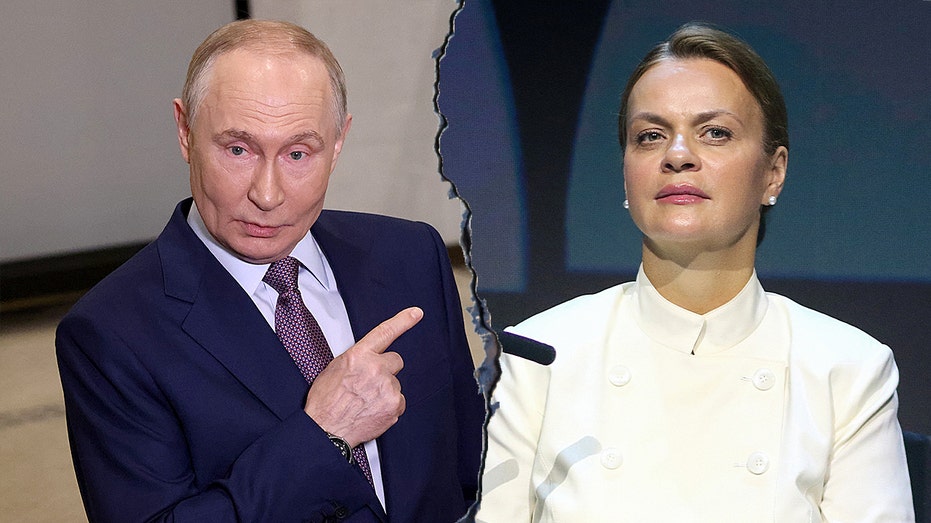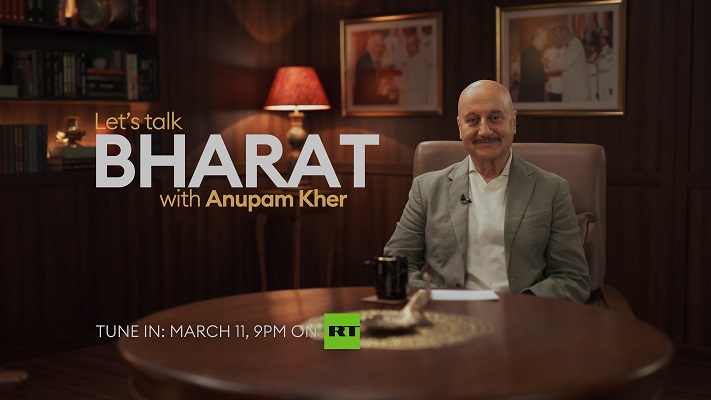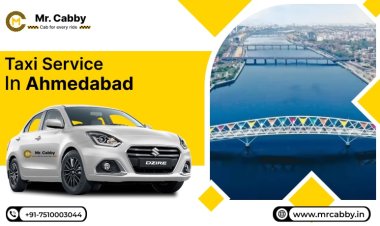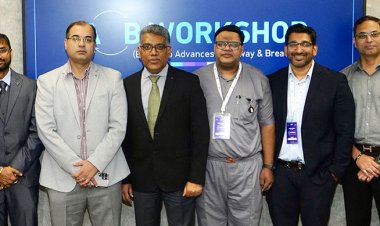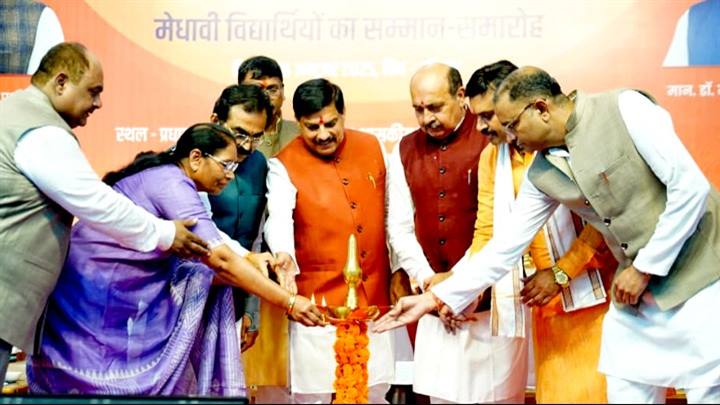What EAM S Jaishankar said on Russia-Ukraine war, BBC documentary on PM Modi; details here
What EAM S Jaishankar said on Russia-Ukraine war, BBC documentary on PM Modi; details here

In an interview with ANI’s Editor Smita Prakash, External Affairs Minister S Jaishankar talked about his journey from foreign service to politics and said he had always aspired to be the best officer and get elevated to the post of Foreign Secretary.
The EAM also spoke on a range of issues from the Russia-Ukraine war to the controversial BBC documentary on prime minister Narendra Modi.
‘Politics at play’: Jaishankar on BBC documentary
“Actual politics” is being conducted “ostensibly as media” by people who do not have the “courage to come into the political field,” Jaishankar said while discussing the controversial documentary.
Terming the furore as “politics by another means,” he said, “Sometime politics of India doesn’t even originate in its borders, it comes from outside.”
“We are not debating just a documentary or a speech that somebody gave in a European city or a newspaper edits somewhere we are debating, actually politics, which is being conducted ostensibly as media there is a phrase ‘war by other means’ this is politics by another means I mean you will do a hatchet job, you want to do a hatchet job and say this is just another quest for truth which we decided
after 20 years to put at this time,” he said.
Coming a year just before the Lok Sabha polls of 2024, the external affairs minister questioned the timing of the documentary.
“I mean, come on, you think timing is accidental! Let me tell you one thing – I don’t know if the election season has started in India, Delhi or not, but, for sure it has started in London, New York,” he added.
The BBC, in January, released a documentary film titled ‘India: The Modi Question,” that features the Gujarat riots of 2002. The film caused controversy for alluding to PM Modi’s role in the riots whereas disregarding the Supreme Court clean chit to Narendra Modi.
“I mean, do you doubt it? Look who the cheerleaders are. What is happening is, just like I told you this drip, drip, drip how do you shape a very extremist image of India, of the government, of the BJP, of the Prime Minister? I mean, this has been going on for a decade,” said Jaishankar when asked about some western media’s bias
against PM Modi in India.
The EAM said that the motive behind planting such stories abroad is to further the anti-India agenda.
“Let’s not have illusions about it…, there is an echo chamber, it will be picked outside and then they will say it is being said outside, it must be true. Then you will say it inside. There is a ding-dong going on, look this is a globalized world, people take that politics abroad,” he added.
He also said, “Why suddenly there is a surge of reports and attention and views? I mean, were some of these things not happening earlier? Many things happened in Delhi in 1984, why don’t we see a documentary on that? If that was your concern, you suddenly feel one day, “I am very humanistic, I must get justice for people who have been wronged, ” said Jaishankar.
He further advised to not get fooled by such agendas and challenged the propagator to come in the political field.
“This is politics at play by people who do not have the courage to come into the political field. They want to have that teflon cover saying that I am an NGO, media organisation etc. They are playing politics,” Jaishankar asserted.
The EAM in his various interactions on multiple platforms abroad has hailed India’s democracy as a guiding force not just for the country but for the world to emulate.
The EAM said that the people’s verdict will quell all the misconceptions.
“Among other things in a democracy – don’t you trust the ballot box, people’s verdict to be the final opinion? I do. I know there are certain people who believe that their view supersedes elections. Look, I like you, you win election great democracy. I don’t like you winning elections. What are you ‘electoral autocracy’. That’s reserved for people whom you don’t like to win elections. This is politics,” he added.
‘India an exceptional international power’
Highlighting India’s growing stature on the global stage, External Affairs Minister S Jaishankar on Tuesday said that “we are an exceptional international power.”
“We have been able to very clearly demonstrate to the world that we are exceptional international power, meaning we are willing to do things for others,
perhaps more than most of the countries are at this point of time,” he said.
Speaking on big global issues, he said, “We have been able to demonstrate to the world that we are an exceptional international power. If you look today India’s global standing is clearly very much higher and quite strong. Strategically, there’s much more clarity in our own thinking and operations.”
“I think the expectation is that India would have a voice, have an opinion, if necessary they would have more than that and this could be climate change, counter-terrorism, black money. if you look at the big it could be maritime security, even today trade, investment that domain, technology,” he added.
He underscored the importance of ‘Vaccine Maitri’ initiative and said, “If you ask me a single thing that we have done in the last ten years which has shaped global views about India, it is ‘Vaccine Maitri.”
He also talked about India partnering in groupings like QUAD and others, he said, “India is going up, it’s going well….Why do we have so many partnerships? Because we get along with so many people. How we are to manage different partnerships? Maybe because we are good at it.”
‘PM wants to create momentum for peace’: Jaishankar on Ukraine war
Jaishankar said India has goodwill and both Russia and Ukraine know that “if we can be of any use, we will be willing”.
He was responding to questions on the Russia-Ukraine war which began on 24 February last year.
He said India was involved in some intricacies and had played a role in relation to Ukraine’s concerns about the safety of the Zaporizhzhia power plant by passing some messages to Russia as well as the IAEA (International Atomic Energy Agency).
Jaishankar said that the remarks by Prime Minister Narendra Modi made to Russian President Vladimir Putin during their meeting on the sidelines of the SCO summit in Uzbekistan in September last year is a widely shared sentiment. PM Modi had told President Putin “today is not the era of war”.
The EAM said PM Modi wants somewhere to create momentum for peace and recalled that the Prime Minister has had conversations with both the Russian President and Ukraine President Volodymyr Zelenskyy.
“The sentiment that the Prime Minister voiced is a widely shared sentiment. It’s also a sentiment that is particularly strong in the countries of the South. You asked me what the voice of the global South…Today you have a huge number of countries in Africa, Asia, Central America, Latin America, the Caribbean, Pacific who feel that our issues are being put on the side and the entire oxygen is being sucked up by the Ukraine conflict. So nobody is really worrying about whether I get food and what cost I get food, what’s happening to fuel, fertilizers, and debt. And today remember, even middle-income countries are going into debt,” Jaishankar said.
“Our relationship with Russia has been extraordinarily steady and it has been steady through all the turbulence in global politics. The opposition’s job is to criticise but I think today we are in a good position,” he added.
WATCH the full interview here
“What we want to do, and I think that was very much on the prime minister’s mind, he wants somewhere to create a momentum for peace. And I think that was his first public expression. Remember he had been talking to president Putin, and president Zelenskyy on the phone. In practical ways, we have been helping out when this black sea grain deal was done, we did a little bit there to help. When I was in New York, the Ukrainian Prime Minister actually had some concerns about the safety of the nuclear power plant. So I spoke to our PM and then got his approval to both to engage the Russians and pass on some messages there and IAEA as well,” he added.
‘China violated agreements with India’
“India’s relationship with major powers is good. China is an exception because it violated agreements that we have and has a posture at the border and as a result, we have a counter posture. Overall India’s relationship with major powers is good. Relationship with Europe best ever we had,” he said.
‘Joined BJP as it’s the right party for India’s rise’
Speaking on his entry into politics, Jaishankar said he joined Bharatiya Janata Party (BJP) as he felt it was the right party at right time for India’s rise and progress.
“I gave it a lot of thought. I became a minister at the end of May. I roughly thought about a month before joining the party. I joined because my sense is that they are the right party at right time for India’s rise and progress. I had no active desire to join politics at all. It came as a complete surprise. The prime minister could even consider me for such a job and I became a minister even before joining a political party. So I would be different from many other people who may also be in bureaucracy before they went into that role,” he said.
On contesting 2024 Lok Sabha polls
Asked whether he would contest the 2024 Lok Sabha polls Jaishankar said, “I am a
Rajya Sabha member. My term expires this year. After that, we will have to see. I am honestly in awe of people irrespective of the party who spent their lives in politics. You do not know how incredibly hard it is. How demanding it is. It is only when you are in politics, you can actually see what it is.”
“Those who particularly contest Lok Sabha election are like the cutting edge. I am getting into politics at a fairly ripe age from another profession. As a minister, I have to spend a lot of time here. As a Delhi person, I have to spend a lot of time here. Rajya Sabha demands are far less than the Lok Sabha demands,” he added.
‘Indira Gandhi removed my father as Union Secretary’
Jaishankar was Foreign Secretary from January 2015 to January 2018 and earlier served in key ambassadorial positions including in China and the United States. His father K Subrahmanyam, who passed away in 2011, is regarded as one of India’s most prominent national security strategists.
“I wanted to be the best foreign service officer. And to my mind, the definition of the best that you could do was to end up as a foreign secretary. In our household, there was also, I won’t call it pressure, but we were all conscious of the fact that my father, who was a bureaucrat, had become a Secretary but he was removed from his
secretaryship. He became, at that time, probably the youngest Secretary in the Janata government in 1979,” Jaishankar said.
“In 1980, he was Secretary, Defence Production. In 1980 when Indira Gandhi was re-elected, he was the first Secretary that she removed. And he was the most knowledgeable person everybody would say on defence,” he added.
Jaishankar said his father was also a very upright person, “may be that caused the problem, I don’t know”.
“But the fact was that as a person he saw his own career in bureaucracy, actually kind of stalled. And after that, he never became a Secretary again. He was superseded during the Rajiv Gandhi period for somebody junior to him who became a cabinet secretary. It was something he felt…we rarely spoke about it. So he was very, very proud when my elder brother became secretary,” said Dr Jaishankar.
Jaishankar said he became a Secretary to the government after his father passed away.
“He passed away in 2011, at that time, I had got what you would call Grade 1 which is like a secretary ….like an ambassador. I did not become secretary, I became that after he passed away. For us, at that time the goal was to become a secretary. As I said I had achieved that goal. In 2018, I was kind of very happy to walk away into the sunset…but, I ended up walking not into the sunset but into Tata Sons! I was contributing my fair bit there. I liked them, I think they liked me. Then completely as a bolt out of the blue, the political opportunity came. Now the political opportunity for me was something I needed to think about because I was simply not prepared for it….So I did reflect on it briefly…,” said Jaishankar when he was asked about
his journey from a bureaucrat to a cabinet minister.
How did #Jaishankar transition through careers?
I come from a bureaucratic family. Entering politics had not crossed my minds, then lo and behold! Once I entered, I myself was very unsure: EAM S Jaishankar speaks to ANI
“It has been four years of very intense learning”, he adds pic.twitter.com/efoYYwkBH0
— News18 (@CNNnews18) February 21, 2023
Reflecting on the phone call from the Prime Minister inviting him to be part of the 2019 Narendra Modi-led cabinet, Jaishankar said that it did come as a surprise. “It had not crossed my mind, I don’t think it had crossed the mind of anybody else in my circle,” he said referring to his induction in the union cabinet.
“Once I entered, I must say in all honesty I myself was very unsure. I had watched politicians all my life. One of the things you get to do in foreign service by the way is you actually perhaps much more than the other services is, you see politicians up close because you see them abroad, you are kind of working with them closely, counselling them. So, it’s one thing to watch but to actually join politics, to become a cabinet member, to stand for Rajya Sabha, you know when I was selected, I was not even a member of Parliament. So each of these things happened one by one. I slid into it, sometimes without knowing it. You learn by watching others,” he added.
Jaishankar, who joined the Indian Foreign Service in 1977, said he looks “very carefully at what people are doing both in my party and other parties”. He is a BJP member in Rajya Sabha from Gujarat.
Answering a question about his time as Cabinet minister, he said it has been very, very interesting four years.
“I don’t think it’s so much a question of winning friends. Yes, it does help when you are a diplomat, in a sense I was trained I would say to get along, to get the most out of situations. Some of it also, different people are made in different ways. You would see, I very rarely get into anything personal with people, even when I am provoked at times. I think people are just made in different ways. I would say
this, it will be four years this summer. It has been a very, very interesting four years. When I look at these four years, for me actually it’s been four years of very intense learning, going to a state which I had really very little knowledge of,” said Jaishankar.
Jaishankar said when he became a minister he had a choice to join a political party or not.
“One, this government, this cabinet is very much a team cabinet. You don’t do your own thing out here. You may have a background, you may come from a stream, but this very idea that you will do your domain as you say we are technocrats. I don’t think it gels with what this cabinet is. Secondly, when I was selected as a minister, I was not a Member of Parliament, I was not a member of a political party either.
I had the choice of whether I would join a political party or not. There was no compulsion on it, nobody brought up that subject. It was something that was left to me. I joined because, one, when you are joining a team, you join it wholeheartedly. That is where you give your best performance and you get the best support.”
“And secondly, I really reflected on what is the meaning of actually joining a political party. It’s not a decision I took lightly. I am someone who’s studied and analyzed politics all his life. It was something for me of great importance. So I joined because I genuinely believe today that this is a party that captures the sentiments and interests and aspirations of India the best. And I get into other
issues because again one of the differences moving from bureaucracy, from a department or a service into politics, you learn so much more when you are a member of the cabinet,” he added.
He said there is a different level of exposure as a union minister compared to that in bureaucracy.
“Your exposure, every cabinet meeting…let’s say there are 10 items, it could be on agriculture, it could be on infrastructure. But you get a cabinet note, you read the note, you are interested, you will study a little bit more. So your interest broadens.
When your interests broaden, and you go out there and speak to people, it will show.”
Asked if there was any difference in how Dr Jaishankar thought and operated as a foreign service officer and as a minister and a politician, he said it was some challenge for him personally.
“In a way, it’s like different lives. You got to understand the challenge that it was for me personally because I am from a bureaucrat’s family. My father was a bureaucrat. I have an elder brother who is a bureaucrat, my grandfather was a bureaucrat, and
uncles who were there. So our world, if I can put it to you this way, was very very bureaucratic. Our goals, our dreams were bureaucratic.”
Jaishankar said every major issue has some political angle which a minister will tend to see much faster than a bureaucrat “It’s a different world, a different responsibility. I put it to people like this. I may have sat 40 years in the Parliament gallery.
It’s not the same as being on the Parliament floor. I used to sometimes… Sushma Swaraj was my Minister. As Foreign Secretary, we used to talk a lot. …I had the confidence that I have a minister and a Prime Minister above me who at the end of the day shoulder that political responsibility,” he said.
“Now, come May 2019, that political responsibility is mine. It is a completely different field. As a Minister, you have to look at it not departmentally, there may be something which is, to give you an example, wheat export to some country. As a secretary I would say that a country’s relationship is very important. But as a Minister, I have to say what my own wheat prices look like, what are the domestic
concerns out there? Who else do we need to talk to? Every issue, every major issue has some political angle which a Minister will tend to see much faster than a bureaucrat, however good that bureaucrat might be,” he said.
Asked if it was kind of challenging, he said, “yes, absolutely”.
With inputs from ANI
Read all the Latest News, Trending News, Cricket News, Bollywood News,
India News and Entertainment News here. Follow us on Facebook, Twitter and Instagram.













